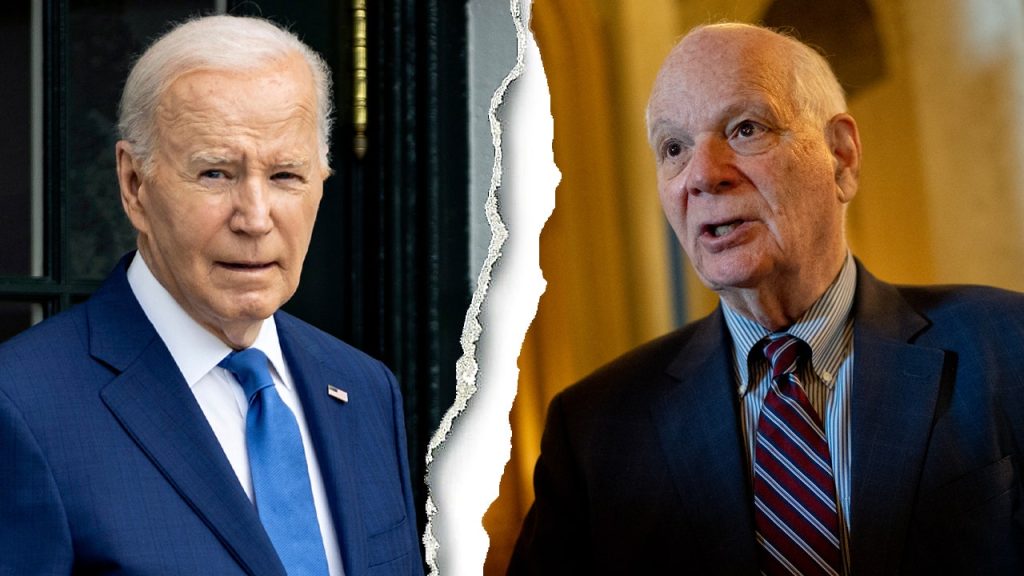Senate Foreign Relations Committee chairman Sen. Ben Cardin, D-Md., publicly disagreed with President Biden’s decision to withhold offensive aid from Israel in the event of a ground invasion of the southern Gaza city of Rafah. Cardin stated that military assistance to support Israel’s security remains in the U.S. interest and should continue, despite concerns raised in a State Department report pointing to alleged human rights violations by Israeli forces following the Hamas terror attack on October 7. While the report highlighted credible allegations of abuses by Israeli security forces, including arbitrary killings and torture, it did not accuse Israel of specific humanitarian law violations and acknowledged that Hamas hides military targets behind civilian populations.
Biden’s decision to halt a shipment of bombs to Israel that could potentially be used in an assault on Rafah was kept quiet until after Holocaust Remembrance Day. The White House National Security Council reportedly made the decision after growing concerns about civilian casualties in Gaza, should Israel proceed with its operation in Rafah. This move by Biden has sparked criticism from pro-Israel Democratic lawmakers, who believe it may be politically motivated. Some lawmakers, such as Rep. Ritchie Torres, suggested that Biden’s decision was driven by election-year politics, while Sen. John Fetterman and others expressed disagreement with pausing weapons shipments to Israel during a time of conflict with Hamas.
Despite the backlash from some Democratic lawmakers, others, including Sen. Jacky Rosen and Sen. Richard Blumenthal, have expressed support for continuing U.S. military aid to Israel. Rosen emphasized that security assistance to Israel should be unconditional, especially given the threats posed by Iran and Hamas. Blumenthal echoed this sentiment, stating that he hopes the U.S. will continue to provide the necessary support, both militarily and diplomatically, for Israel’s defense. The White House defended Biden’s decision, emphasizing that it was based on national security interests and the need to prevent civilian casualties in the ongoing conflict.
The division within the Democratic Party over U.S. support for Israel has been highlighted by recent protests on college campuses and the arrest of thousands of anti-Israel agitators. While left-wing voices in the party have criticized Biden’s decision as pandering to the far left, lawmakers like Cardin have stood by the importance of supporting Israel’s security. The Biden administration’s handling of the shipment pause has reignited debate about the U.S.’s role in the Israel-Palestine conflict, with some lawmakers calling for a continued strong alliance with Israel, regardless of political considerations.
The conflict in Gaza and Biden’s decision regarding weapons shipments to Israel have put the administration in a challenging position, as it grapples with balancing support for Israel’s security needs and addressing concerns about human rights violations. The State Department’s report highlighting allegations of abuses by Israeli security forces has added to the complexity of the situation, with lawmakers urging a careful approach to ensure that U.S. support for Israel aligns with international humanitarian law. Biden’s stance on withholding weapons from Israel if a major invasion of Rafah occurs reflects his prioritization of minimizing civilian casualties and promoting a diplomatic resolution to the conflict.
As the situation unfolds, Democratic lawmakers continue to voice their opinions on the U.S.’s relationship with Israel and the need to navigate the complex dynamics of the Israel-Palestine conflict. The debate over military aid, human rights concerns, and political motivations underscores the challenges faced by the Biden administration in managing relations with key allies while upholding U.S. values and interests. Despite differing views within the party, the fundamental question of how best to support Israel’s security remains a central issue that will likely continue to shape U.S. foreign policy decisions moving forward.


